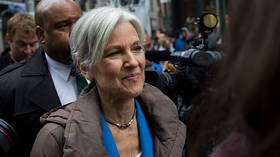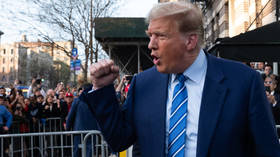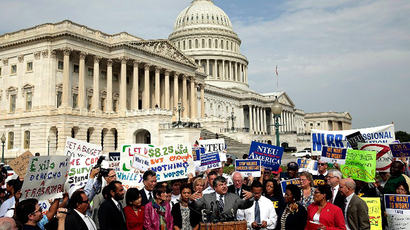‘Big lender’ China urges US to avoid bankruptcy
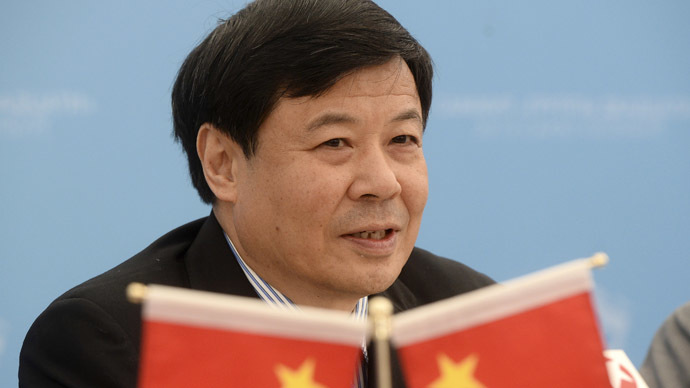
As the Government shutdown in the US enters its second week, the country is just 10-days away from default, and the country’s main creditor China has urged Washington to take decisive steps to avoid bankruptcy and ensure safety of Chinese investments.
China, the US government's largest foreign creditor, is "naturally concerned about developments in the US fiscal cliff", as Reuters quoted Vice Finance Minister Zhu Guangyao giving the Chinese government's first public response to the Oct 17 US deadline for raising the debt ceiling.
China currently holds 22.85 percent of the US $16.7trln debt,
which makes it the biggest US creditor.
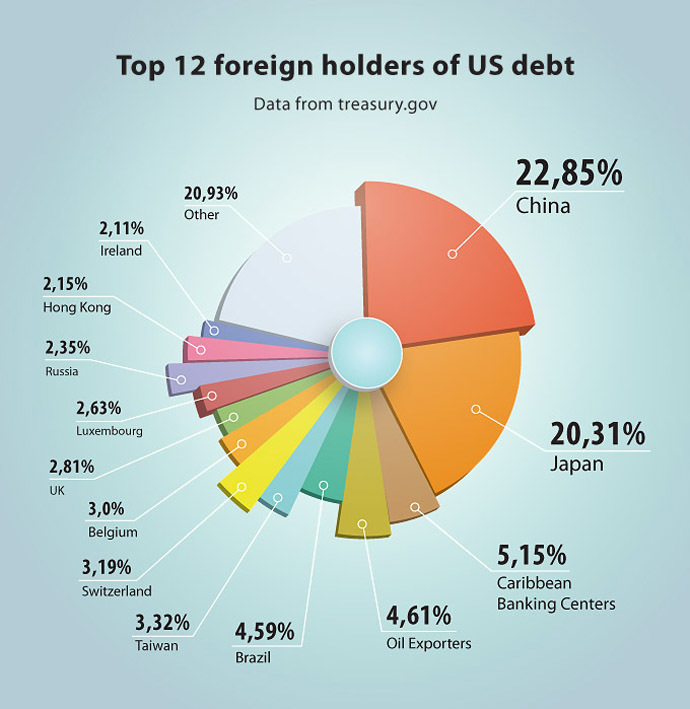
Treasury Secretary Jacob Lew calculated the US would run out of money by October 17 and have less than $30 billion cash in hand if Congress fails to agree on its spending plans.
"We ask that the United States earnestly takes steps to resolve in a timely way before October 17 the political (issues) around the debt ceiling and prevent a US debt default to ensure safety of Chinese investment in the United States and the global economic recovery," Zhu said.
In 2011 a similar budget deadlock cost the US its triple-A rating, with Standard & Poors downgrading the country to AA+.
"We hope the United States fully understands the lessons of history," Zhu said.
The debt ceiling debate of 2011 resolved with a last minute decision following tough warnings over the economic catastrophe from the looming default.
This time around alarm bells are ringing again, with Treasury Secretary Jack Lew warning that the budget brinkmanship was "playing with fire" and imploring the Congress to pass legislation to re-open the government as well as increase the nation's debt limit.
The lack of accord in the US Congress could cost the US a default – the first in history - which would send the global economy into a financial crisis similar to 2008 or worse. The 2008 financial crisis plunged the country into the worst recession since the Great Depression of the 1930s.
Raising the debt ceiling is vital for the US itself and the global economy, but Republican House Speaker John Boehner insists the increase of the maximum allowed borrowing limit should come with terms. Boehner vowed on Sunday that there was "no way" Republican lawmakers would agree to a measure to raise the debt ceiling unless it included conditions to rein in deficit spending.
“The votes are not in the House to pass a clean debt limit, and the President is risking default by not having a conversation with us,” Boehner said.
The shutdown has put hundreds of thousands of workers off the job, closed national parks and museums and stopped an array of government services.
The one bright spot in a Washington deadlock is a significant chunk of the furloughed federal workforce is headed back to work. Defense Secretary Chuck Hagel ordered nearly 350,000 back on the job, basing his decision on a Pentagon interpretation of a law called the Pay Our Military Act.
Those who remain at home or are working without paychecks are a step closer to getting back pay once the partial government shutdown ends. The Senate could act this week on the measure that passed the House unanimously on Saturday.




